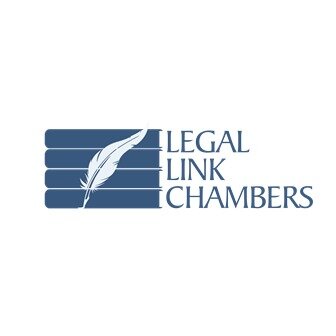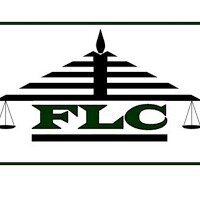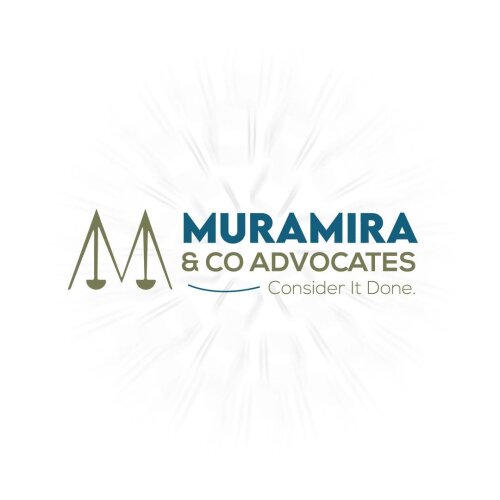Best Lawyers in Kigali
Share your needs with us, get contacted by law firms.
Free. Takes 2 min.
List of the best lawyers in Kigali, Rwanda
About Hiring a Lawyer in Kigali, Rwanda
Hiring a lawyer in Kigali, Rwanda, involves several steps to ensure you get the right legal representation tailored to your specific needs. Initially, it's important to identify your legal issue clearly. Once you know the type of legal assistance you need, you should begin searching for lawyers who specialize in that field. You can find lawyers through referrals, online lawyer directories, or local bar associations. Once you have shortlisted a few candidates, plan to meet them for an initial consultation. This meeting can help you discuss your case, understand their experience, and discuss fee structures. Finally, always ensure your chosen lawyer is registered with the Rwanda Bar Association.
Why You May Need a Lawyer
There are several situations where seeking legal assistance in Kigali might be necessary. These include, but are not limited to:
- Business Law: Establishing or running a business, dealing with contracts, compliance with regulatory framework, or resolving commercial disputes.
- Civil Matters: Disputes between individuals regarding property, contracts, or other civil issues.
- Family Law: Divorce, child custody arrangements, or inheritance issues.
- Criminal Defense: If you are accused of a crime and need representation to ensure your rights are protected.
- Immigration Issues: Assistance with visas and residency laws applicable in Rwanda.
- Land and Property: Issues related to land ownership, real estate transactions, or tenancy rights.
Local Laws Overview
The legal framework in Rwanda is a blend of civil law derived from their colonial past under Belgian rule and customary law. Key aspects of Rwandan law include a focus on community-based justice systems, such as the Gacaca Courts for genocide-related crimes. The country has progressive business laws that promote investment and provide clear guidelines for entrepreneurs. Family and inheritance laws are governed by the civil code, with particular attention to the rights of children and women. Environmental law in Rwanda is also stringent, promoting sustainable practices and ensuring environmental protection.
Frequently Asked Questions
What qualifications should I look for in a lawyer in Kigali?
Look for lawyers who are registered with the Rwanda Bar Association and specialize in the relevant area of law. Checking their experience and past case successes can also be beneficial.
How are legal fees structured in Kigali?
Legal fees can be based on hourly rates, flat fees for specific services, or a contingency basis, depending on the nature of your case. It's crucial to discuss and agree on the fee structure upfront.
Can I represent myself in court in Kigali?
While it is legally permissible to represent yourself, it is often not advisable due to the complexity of legal processes and the benefits of professional legal representation.
How do I verify a lawyer's credentials?
You can verify a lawyer’s credentials through the Rwanda Bar Association, which maintains records of practicing lawyers and their standing.
Do I need a lawyer for business startup in Kigali?
Yes, having a lawyer can be very helpful for understanding legal requirements, drafting shareholder agreements, and ensuring compliance with all the relevant laws.
What should I bring to my first meeting with a lawyer?
Bring all relevant documents related to your case, a list of questions you might have, and any prior correspondence or decisions made related to your issue.
Are there legal aid services available in Kigali?
Yes, legal aid services are available for those who may not afford private legal services. Organizations like Legal Aid Forum offer assistance in certain cases.
What happens if I am not satisfied with my lawyer's service?
If you're unsatisfied, communicate your concerns with your lawyer first. If not resolved, consider contacting the Rwanda Bar Association to lodge a complaint.
How long does a typical legal process take in Kigali?
The duration varies widely depending on the complexity of the case, though most processes aim to be resolved within a reasonable time frame. Your lawyer can give you an estimate once they understand the specific details of your case.
Can lawyers in Kigali represent me in matters outside of Rwanda?
Lawyers registered in Rwanda primarily practice within the country. For international matters, they might collaborate with lawyers in the relevant jurisdictions.
Additional Resources
Several resources and organizations can assist in legal matters, including:
- Rwanda Bar Association: They maintain a list of registered lawyers and offer resources related to legal practice in Rwanda.
- Ministry of Justice - Rwanda (MINIJUST): The official government body overseeing justice-related issues, from which individuals might obtain various legal perspectives and frameworks.
- Legal Aid Forum: Provides legal assistance to those who cannot afford legal services and works to expand access to justice.
Next Steps
If you find yourself in need of legal assistance in Kigali, start by clearly defining your legal needs, and then reach out to professionals specializing in those specific areas. Ensure that any lawyer you consider is properly qualified and registered with the Rwanda Bar Association. Engage in initial consultations to find a lawyer you are comfortable with and discuss your case specifics and fee structures. Always ensure all agreements and understandings are documented to avoid misunderstandings later on.
Lawzana helps you find the best lawyers and law firms in Kigali through a curated and pre-screened list of qualified legal professionals. Our platform offers rankings and detailed profiles of attorneys and law firms, allowing you to compare based on practice areas, experience, and client feedback.
Each profile includes a description of the firm's areas of practice, client reviews, team members and partners, year of establishment, spoken languages, office locations, contact information, social media presence, and any published articles or resources. Most firms on our platform speak English and are experienced in both local and international legal matters.
Get a quote from top-rated law firms in Kigali, Rwanda — quickly, securely, and without unnecessary hassle.
Disclaimer:
The information provided on this page is for general informational purposes only and does not constitute legal advice. While we strive to ensure the accuracy and relevance of the content, legal information may change over time, and interpretations of the law can vary. You should always consult with a qualified legal professional for advice specific to your situation.
We disclaim all liability for actions taken or not taken based on the content of this page. If you believe any information is incorrect or outdated, please contact us, and we will review and update it where appropriate.
Refine your search by selecting a practice area.


































